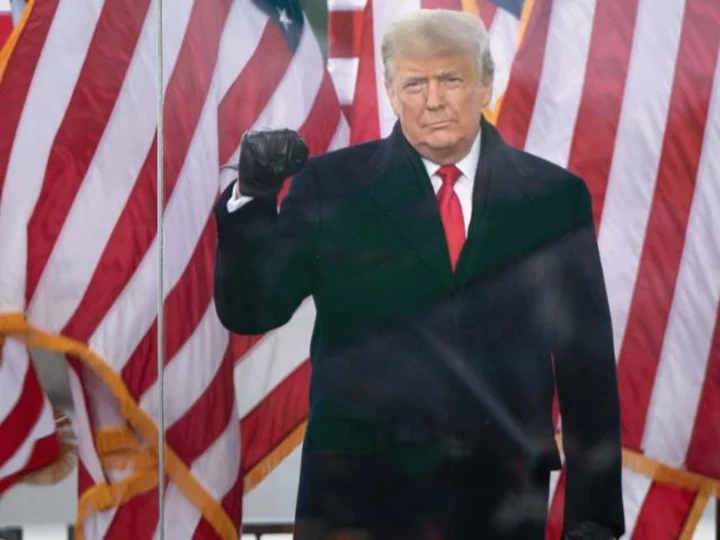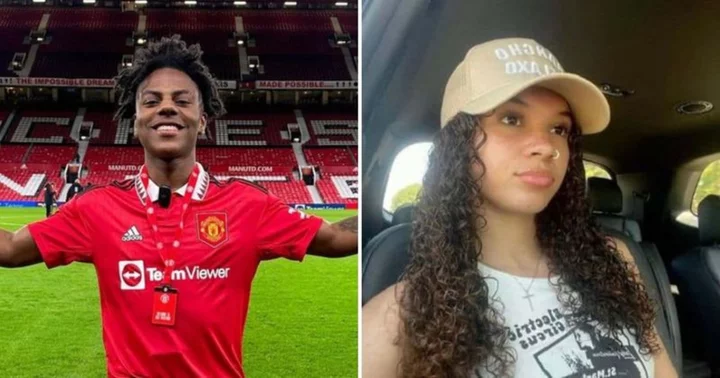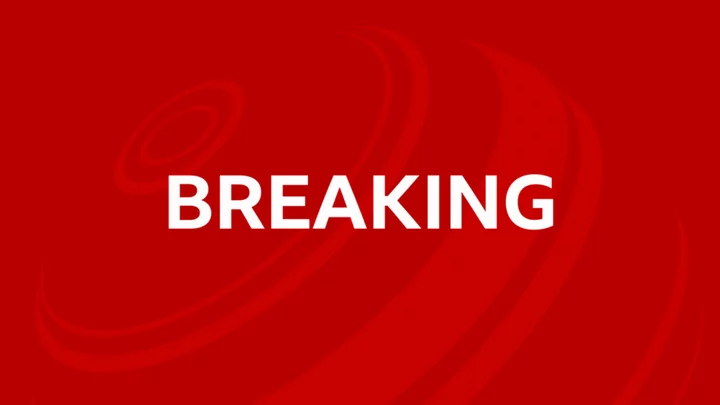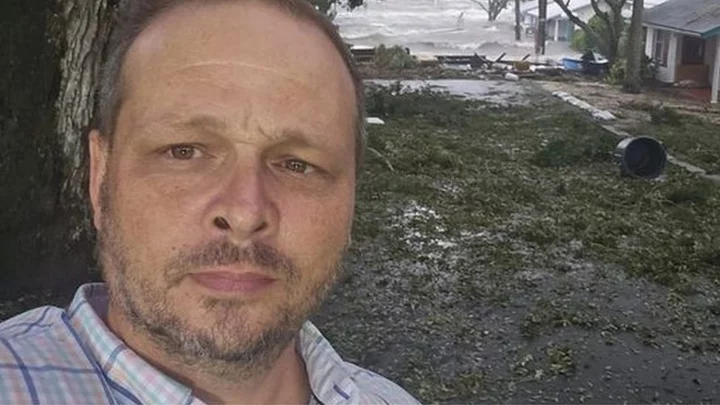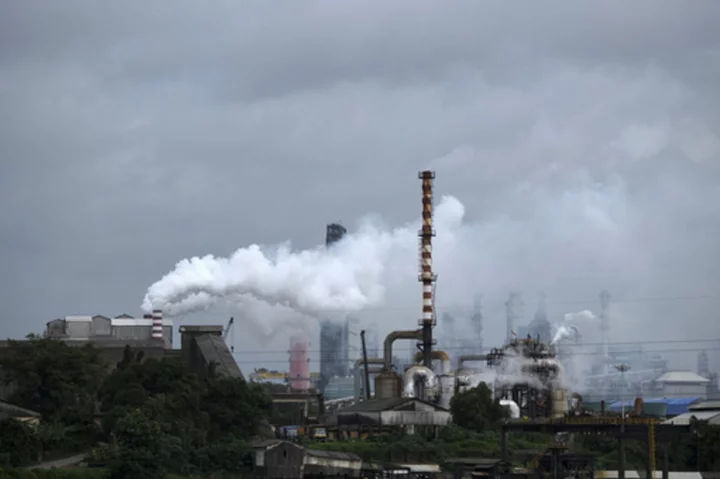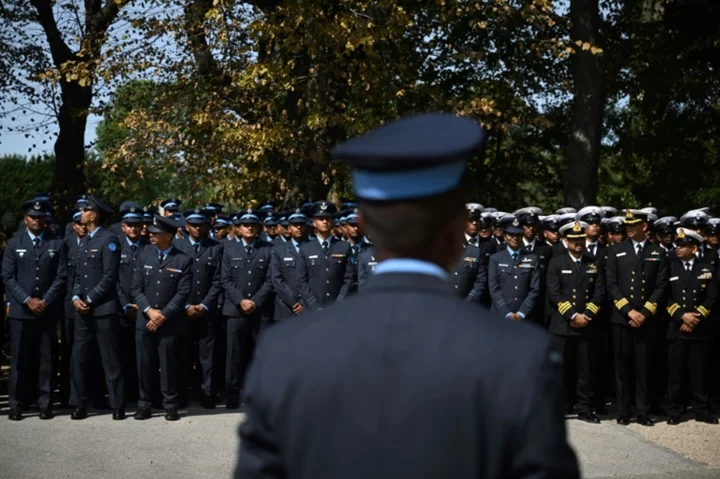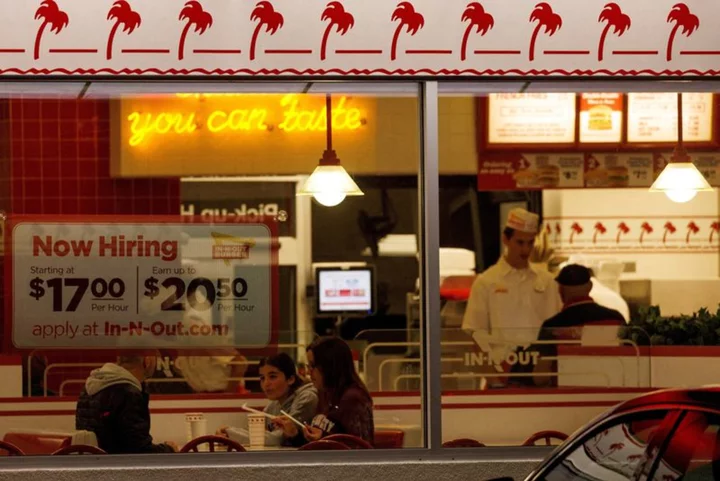Special counsel Jack Smith unveiled his case alleging that former President Donald Trump broke several laws in his attempts to overturn the 2020 election, with a grand jury indictment returned Tuesday that illustrated the depth and breadth of the federal criminal investigation.
Prosecutors said in the new charging documents that Trump "was determined to remain in power" after losing the 2020 election, and that he and six unindicted co-conspirators orchestrated a plot to overturn the results on and leading up to January 6, 2021.
Trump faces four counts, accused of conspiring to defraud the United States and to obstruct an official proceeding -- the latter a charge that has already successfully been brought against rioters who breached the Capitol. In another charge brought against the former president, prosecutors are relying on a Reconstruction-era civil rights law that prohibits conspiracies to deprive a person of their rights -- in this case, "the right to vote and have one's vote counted."
While much of Trump's plotting to overturn the election happened in the open in real time and was the subject of a presidential impeachment trial and major congressional probe, the new charges show the work prosecutors put into assembling a sprawling and sweeping case. For instance, the indictment appears to include witness testimony that they secured, sometimes after secretive legal fights over executive privilege, that was out of reach for other investigations.
Trump, who has derided Smith's case as a politically motivated "fake indictment," has been summoned to appear before a magistrate judge on Thursday.
Here are the key takeaways from the indictment:
Trump accused of knowingly spreading 'prolific lies' of fraud in 2020 election
Prosecutors detailed the "prolific lies" that Trump made in the wake of the 2020 election, including knowingly pushing false claims of voter fraud and voting machines switching votes, the indictment says, despite state and federal officials telling him the claims were wrong.
Trump "spread lies that there had been outcome-determinative fraud in the election and that he had actually won" the indictment states, adding that the "claims were false, and the Defendant knew they were false."
"But the defendant disseminated them anyway -- to make his knowingly false claims appear legitimate, create an intense atmosphere of mistrust and anger, and erode public faith in the administration of the election."
In one anecdote captured in the indictment, Trump allegedly acknowledged that he would be departing the White House on January 20, 2021, after his advisers told him he should hold off taking a certain national security action because the Inauguration was only 17 days away.
"Yeah, you're right, it's too late for us. We're going to give that to the next guy," Trump allegedly said.
Prosecutors put forward several examples of Trump being told by his aides that fraud claims he was promoting were false.
The acting attorney general and acting deputy attorney general told Trump that the claim he continued to make in the wake of the 2020 election -- that there had been more votes than voters in Wisconsin -- was false, the indictment says. Despite this, Trump repeated the false claim -- including on January 6.
In the hours before the Capitol attack, Trump also repeated the false claim that there had been more than 200,000 illegal votes in Pennsylvania, despite Justice Department officials telling him multiple times the claim was false.
In Michigan, Trump had said multiple times there was an illegal dump of votes in Detroit in the middle of the night during the 2020 election, despite Republican state leaders at the time telling Trump he was wrong and had lost the state because he "had had underperformed with certain voter populations in the state," the indictment says.
The indictment cites instances where Trump was informed that his claims were false by Vice President Mike Pence, the director of national intelligence, senior members of the Justice Department, the Department of Homeland Security's Cybersecurity and Infrastructure Security Agency, his own staffers, state lawmakers as well as state and federal courts.
Allegedly organized fake electors
The indictment alleges that Trump and his co-conspirators effectively tricked individuals from seven targeted states into creating and submitting certificates asserting they were legitimate electors.
The goal was to create a "fake controversy" at the certification proceeding in those states on December 14, 2020, and "position the Vice President -- presiding on January 6 as President of the Senate -- to supplant legitimate electors" with Trump's fake ones.
Prosecutors say Trump and co-conspirators made a strategic shift beginning in early December 2020 after they failed to convince state officials not to certify the correct result.
In outlining the scheme, prosecutors say that court cases were filed in states where the fake electors were being organized as a pretext to justify the assembling of the alternate slates.
Trump lawyer Kenneth Chesebro told Trump attorney Rudy Guiliani -- both identified in the indictment only as Co-conspirator 5 and Co-conspirator 2 respectively -- that he had been told by state-level operatives that "it could appear treasonous for the AZ electors to vote on Monday if there is no pending court proceeding."
The indictment also quotes a colorful email from an unnamed Arizona attorney, memorializing a conversation the attorney had with Chesebro, that describing Chesebro's "idea" of the scheme as having "our electors send in their votes (even though the votes aren't legal under federal law -- because they're not signed by the Governor); so that members of Congress can fight about whether they should be counted on January 6th."
"My comment to him," the attorney wrote, "was that I guess there's no harm in it, (legally at least) -- i.e. we would just be sending in 'fake' electoral votes to Pence so that 'someone' in Congress can make an objection when they start counting votes, and start arguing that the "fake" votes should be counted."
'Exploited' January 6 attack on US Capitol
The indictment alleges that Trump and co-conspirators "exploited" the "violence" and "chaos" of the Capitol attack -- continuing efforts to convince members of Congress to delay the certification of the election that day, while rebuffing pleas that he direct the rioters to depart.
In a phone call the evening of the riot, Trump refused a request from his then-White House Counsel Pat Cipollone to withdraw his objections and allow for Congress' certification of the 2020 election results, prosecutors said in the new indictment.
Prosecutors pointed to Trump's alleged repeated refusals to direct the rioters to depart the Capitol. Trump did eventually tell the rioters to go home in a recorded video message released at 4:17pm that day.
The indictment also describes phone calls that Giuliani made to members of Congress that evening.
In a voice mail left with an unidentified US Senator, Giuliani asked the senator to "object to every state and kind of spread this out a little bit like a filibuster," according to a line from the voicemail quoted in the indictment.
Pence evidence was out of reach for other January 6 probes
Many of the revelations in Tuesday's indictment appear to be the fruits of aggressive legal battles brought by prosecutors to secure testimony from close presidential aides -- including new details about the communications Trump had with Pence in the bid to convince the vice president to disrupt Congress' certification vote.
Among those insights is a Christmas Day phone call Pence made to Trump to "wish him a Merry Christmas." Trump, however, "quickly turned the conversation to January 6 and his request that the Vice President reject electoral votes that day," the indictment says.
Pence pushed back, telling Trump again, "You know I don't think I have the authority to change the outcome," according to the indictment.
Prosecutors also have obtained "contemporaneous notes" Pence took about a conversation, with with the indictment saying that those materials showed how Trump "falsely told the Vice President that the "Justice Dept [was] finding major infractions."
According to the indictment, Trump told Pence multiple times in the days before January 6 that he had the right to reject the 2020 election results.
Prosecutors also fought in secret court proceedings to pierce privilege claims Trump was asserting over Cipollone and White House Deputy Counsel Pat Philbin. Philbin, according to the indictment, told Trump in December 2020 "there is no world, there is no option in which you do not leave the White House [o]n January 20th."
Additionally, prosecutors secured previously unknown evidence illuminating the role being played Mark Meadows, which has been somewhat of a black hole in the other probes into the election subversion schemes.
The new indictment recounts a conversation between Trump and Meadows, during which Meadows allegedly told Trump that he had observed Georgia election officials were "conducting themselves in an exemplary fashion," while assuring Trump they would find fraud if it existed. Hours later, Trump tweeted that the election officials were "terrible people" who were trying to cover-up evidence of fraud.
There's likely much more to come
The normally tight-lipped Jack Smith made a rare public statement with the unsealing of the indictment, making clear that his team's "investigation of individuals continues and emphasizing that the Justice Department was committed to "ensuring accountability for those criminally responsible for what happened that day."
As the investigation chugs along, and the possibility looms that others will be charged as part of the probe, the criminal proceedings against Trump will unfold federal court in DC, starting with an appearance he'll make before a magistrate judge scheduled for Thursday.
It is likely at that appearance he will enter his plea and US District Judge Tanya Chutkan -- an Obama-appointee who was assigned the case -- will preside over the proceedings moving forward. She has developed a reputation of being a particularly harsh sentencer in the January 6 rioter cases and at one such sentencing proceeding, said that the "country is watching to see what the consequences are for something that has not ever happened in the country before."
After Trump's first appearance and arraignment, his defense team will receive the evidence investigators collected in the probe and the monthslong process of resolving potential pre-trial disputes, like whether prosecutors have overcome the legal bar for bringing the case and what evidence can be put before a jury, will get underway.
Trump's lawyers will be juggling that court calendar with the proceedings in the two other criminal indictments he faces -- one another case brought by Smith accusing him of mishandling classified documents from his White House, and another spearheaded by Manhattan prosecutors who brought charges stemming from a 2016 campaign hush money scheme.
Based on his arguments in those case, it appears likely that the former president will press for a trial in the election subversion case to wait until after the 2024 election. In the meantime, he'll continue his campaign schedule, including an appearance he has scheduled in Alabama on Friday.

